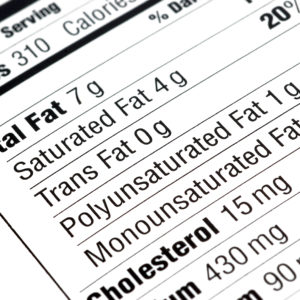Advertisers sometimes stretch the truth. But small-business owner Ketan Vakil got in trouble for the opposite reason: He wanted to put correct information about his meat broths and spice blends on product packaging.
His New York company, Gourmend Foods, uses ingredients that are low FODMAP, an acronym for difficult-to-digest sugars. People with sensitive stomachs look for low FODMAP options when they shop, so Vakil decided to make things easy.
He designed labels that clearly and accurately described the contents as “low FODMAP.” The claim is not just slick marketing. Vakil’s products are laboratory tested and independently certified as low FODMAP.
No one disputes the fact. Yet, when Vakil expanded his product line to include beef broth, the Department of Agriculture forced him to remove any mention of FODMAP from the label. He could not even say “digestible” or “gut-loving.” The USDA also alerted the Food and Drug Administration, which has jurisdiction to regulate Vakil’s chicken broth and seasoning mixes.
Packaging for these products already included the “low FODMAP” claim. Now Vakil must worry about an FDA crackdown. The reason has nothing to do with truth in advertising.
Regulators ban using “low FODMAP” and similar language on food labels because federal agencies follow an outdated list of preapproved “nutrient content claims.” No one can call any product “low FODMAP,” regardless of the ingredients, until the government catches up with consumer demand and expands its menu of permissible descriptions.
Vakil and his customers cannot wait. Tens of millions of citizens suffer from digestive disorders, including Vakil. He started his business in 2021 to fill a market gap after spending years searching for low FODMAP options for himself. Finding packaged foods with the information he needed proved difficult, he developed his recipes and eventually launched Gourmend Foods. That’s when he discovered the problem was government censorship, not market resistance.
Rather than accept the restrictions on his speech, Vakil and Nevada customer Michelle Przybocki fought back with a First Amendment lawsuit filed in March 2023. Our public interest law firm, the Institute for Justice, represents them.
The case hinges on the constitutional right to convey truthful, factual, verifiable information without government permission.
The war on FODMAP labeling is just one example of abuse. Regulators tried to stop Florida creamery owner Mary Lou Wesselhoeft from calling her skim milk “skim milk” in 2014. They said she had to call it “imitation” skim milk, ironically because she refused to add artificial vitamins. Wesselhoeft had to go to the 11th Circuit Court of Appeals to defeat the government censors.
Daniel Staackmann, the founder of plant-based food company Upton’s Naturals, fought his own First Amendment battle in Mississippi. State lawmakers, acting at the behest of the meat lobby, told him in 2019 he could not call his veggie burgers “veggie burgers.” He could not call his meatless hot dogs “meatless hot dogs.” And he could not call his vegan bacon “vegan bacon.” The state did not back down until Staackmann sued in federal court.
A similar feud has continued for years over the right of plant-based milk producers to use the word “milk.” Actress Aubrey Plaza sided with Big Dairy on April 20 when she starred in a satirical ad for “wood milk.”
The backlash from her fans was swift. For now, at least, they can continue buying plant-based milk products with accurate and easy-to-understand labels. Draft guidance from the FDA, released in February, rejects the dairy industry’s push to criminalize common terms like “almond milk,” “coconut milk,” “soy milk” and “oat milk.”
This conclusion should never have been in doubt. Like low FODMAP foods, the First Amendment is easy to digest. The underlying concept is simple: Businesses have a right to tell the truth, and customers have a right to hear it.

